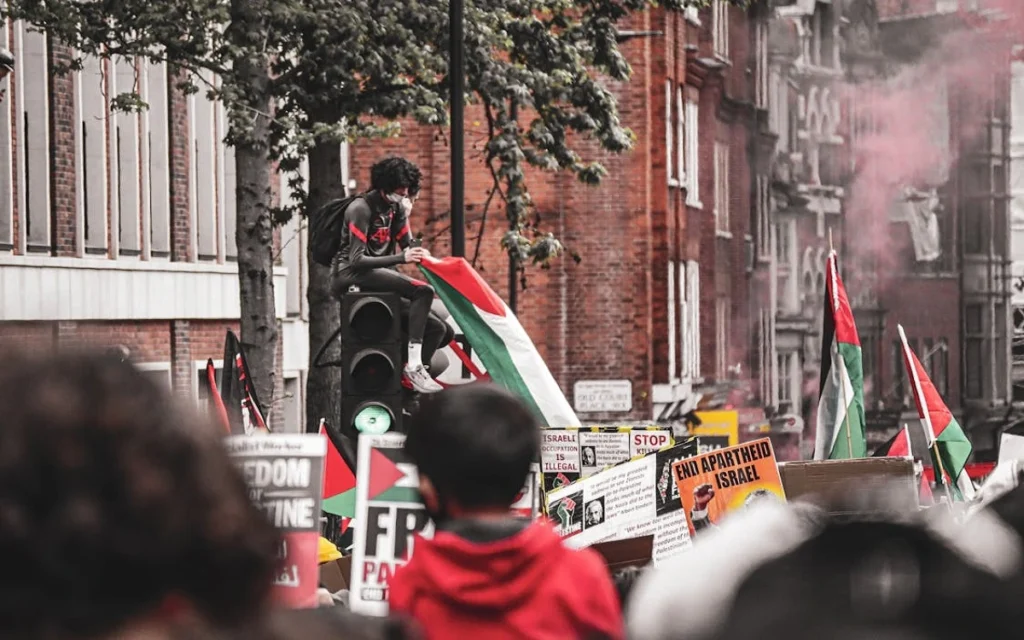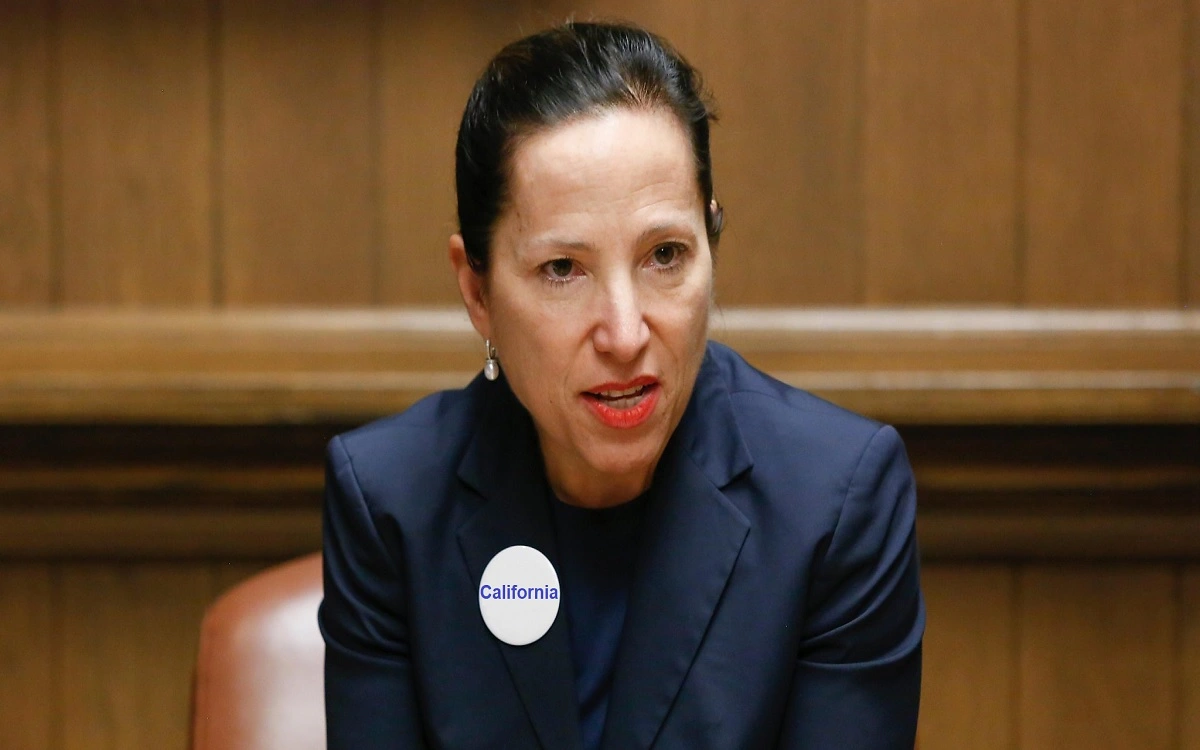|
Getting your Trinity Audio player ready...
|
In a scathing rebuke, University of California Regent Eleni Kounalakis has criticized the state’s public universities for their handling of recent pro-Palestinian protests on campuses. Kounalakis, a prominent Democrat and former U.S. ambassador, accused the institutions of failing to adequately protect free speech and fostering an environment of intimidation against pro-Israel students and faculty.
The controversy stems from a series of demonstrations and counter-protests that erupted across several UC campuses in late April and early May. Tensions flared as pro-Palestinian groups marked the annual
Israeli Apartheid Week
with rallies, lectures, and other events condemning Israeli policies towards the Palestinians. These were met with counter-protests from pro-Israel advocates, leading to heated exchanges and allegations of harassment from both sides.

In an op-ed published in the Los Angeles Times [1], Kounalakis lambasted the universities’ response as
feckless and disappointing.
She cited multiple instances where pro-Israel students and faculty reported being
shouted down, threatened, and in some cases, even physically assaulted
for voicing dissenting views or showing support for Israel.
It is a travesty that in 2024, at institutions that pride themselves on being bastions of free inquiry and robust debate, certain viewpoints are effectively being silenced through intimidation and fear,
Kounalakis wrote.
The regent also accused university administrators of turning a blind eye to the alleged suppression of pro-Israel speech, suggesting a concerning double standard.
One can only imagine the swift and forceful response that would have ensued had the targeted group been any other than those supportive of Israel,
she added.
Kounalakis’ criticisms have struck a nerve, reigniting the long-simmering debate over academic freedom, hate speech, and the boundaries of acceptable protest on college campuses. Supporters have praised her for taking a principled stand against viewpoint discrimination, while detractors have accused her of exaggerating the incidents and unfairly maligning the pro-Palestinian movement.
UC President Michael V. Drake pushed back against Kounalakis’ claims in a statement, asserting that the university system remains
firmly committed to upholding free speech
while condemning
acts of violence, harassment, or intimidation
[2]. He cited measures taken by campus authorities, including increased security presence and disciplinary actions against disruptive protesters.
However, pro-Israel advocacy groups have echoed Kounalakis’ criticisms, alleging a pattern of hostility and marginalization towards Jewish and pro-Israel students across multiple California campuses. The AMCHA Initiative [3], which tracks anti-Semitic activity in higher education, has repeatedly included several UC schools on its annual list of the worst campuses for Jewish students.
As the dust settles from the latest round of protests, all eyes are on the UC Board of Regents and its leadership to address the simmering tensions. Kounalakis is expected to introduce a new policy proposal aimed at strengthening free speech protections and combating what she termed the
rising tide of intolerance
on university grounds.
With passions inflamed on both sides of the Israeli-Palestinian conflict, striking the right balance between open discourse and ensuring campus safety remains an intractable challenge for university leaders. As the national spotlight intensifies, their handling of this delicate issue will have far-reaching implications for the preservation of academic freedom and the embattled ideal of the university as a true marketplace of ideas.
For More News Update Visit California News



